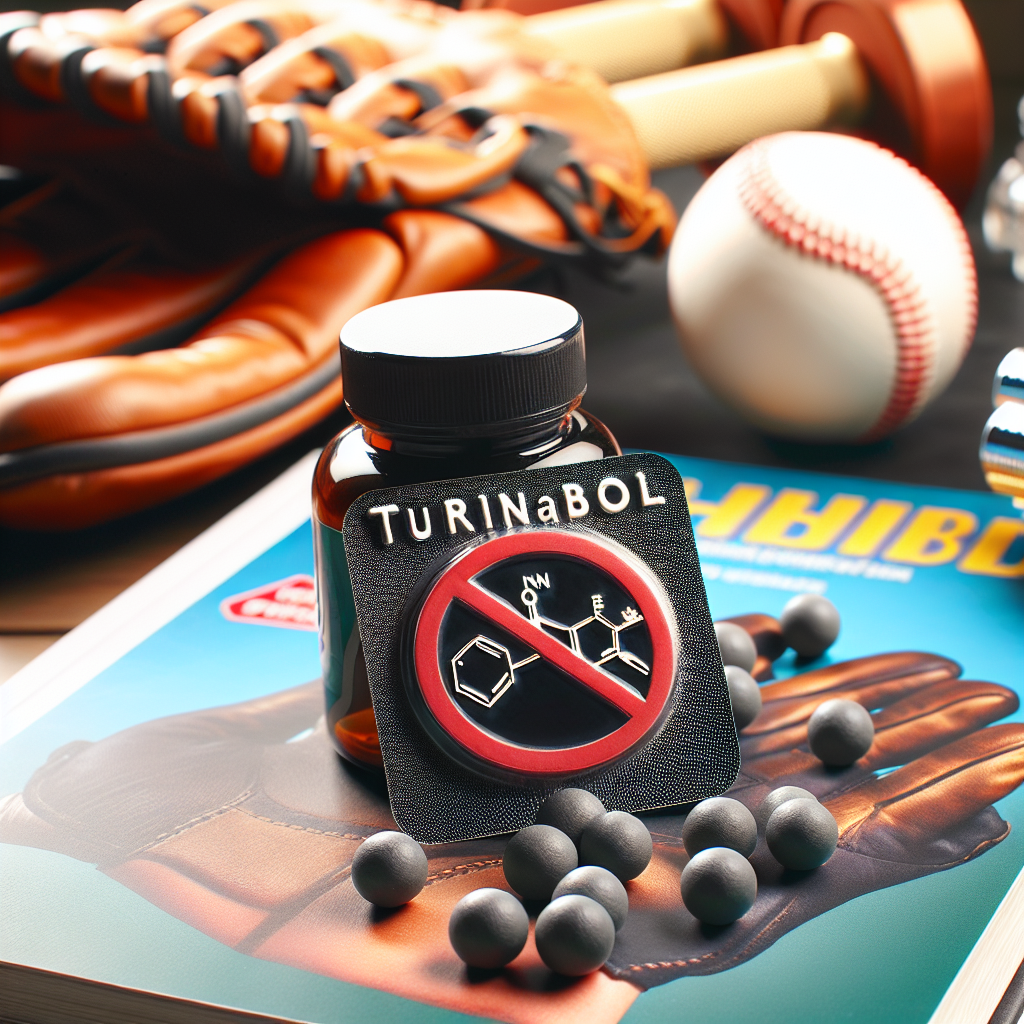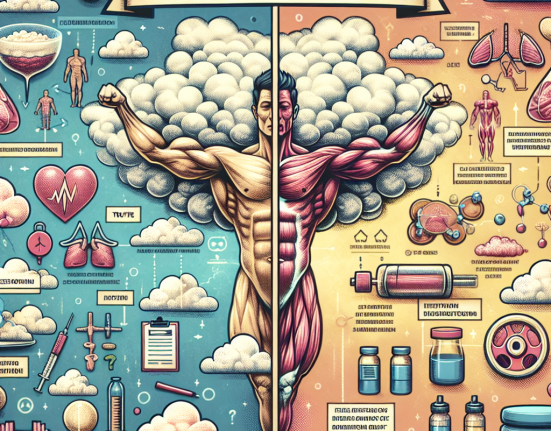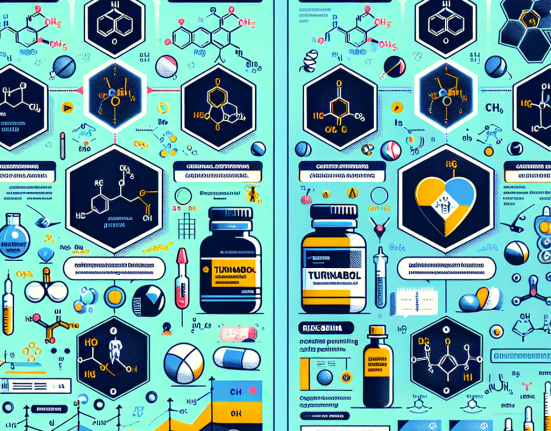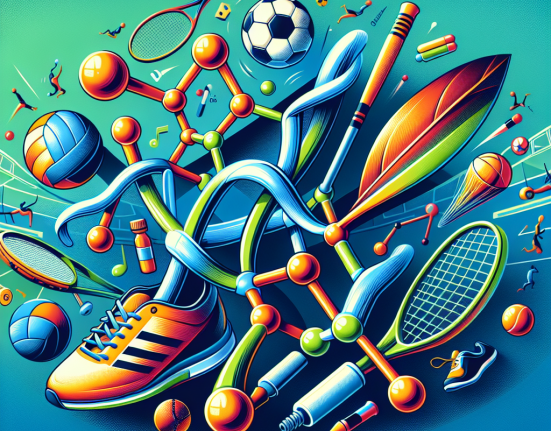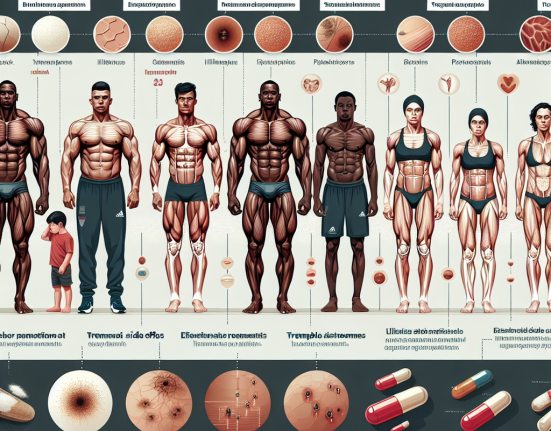-
Table of Contents
Turinabol: Forbidden Drug in Sports Pharmacology
Turinabol, also known as 4-chlorodehydromethyltestosterone, is a synthetic anabolic-androgenic steroid that was developed in the 1960s by East German scientists. It was initially used to enhance the performance of their Olympic athletes, but it was later discovered to have serious side effects and was subsequently banned from use in sports. Despite its prohibition, Turinabol continues to be used by some athletes, leading to numerous doping scandals and controversies.
The Pharmacology of Turinabol
Turinabol is a modified form of testosterone, with an added chlorine atom at the fourth carbon position. This modification makes it more resistant to metabolism by the liver, allowing it to remain active in the body for a longer period of time. It also reduces its androgenic effects, making it less likely to cause masculinizing side effects such as hair loss and acne.
Like other anabolic steroids, Turinabol works by binding to androgen receptors in the body, stimulating protein synthesis and increasing muscle mass and strength. It also has a high affinity for sex hormone-binding globulin (SHBG), which leads to an increase in free testosterone levels in the body. This can further enhance its anabolic effects.
Turinabol has a half-life of approximately 16 hours, meaning it can remain active in the body for up to 8 hours after ingestion. It is primarily metabolized by the liver and excreted in the urine. The detection time for Turinabol in urine is approximately 20 days, making it a popular choice for athletes looking to avoid detection in drug tests.
The Use of Turinabol in Sports
Turinabol was initially used by East German athletes in the 1960s and 1970s to enhance their performance in international competitions. It was believed to provide all the benefits of other anabolic steroids without the androgenic side effects. However, it was later discovered that Turinabol had serious health consequences, including liver damage, cardiovascular problems, and hormonal imbalances.
Despite its ban from use in sports, Turinabol continues to be used by some athletes, particularly in bodybuilding and powerlifting. It is often used in combination with other steroids to enhance its effects and mask its presence in drug tests. This has led to numerous doping scandals and controversies, tarnishing the reputation of the sports and athletes involved.
One of the most well-known cases of Turinabol use in sports is the Russian doping scandal at the 2014 Winter Olympics. It was revealed that Russian athletes had been using Turinabol and other banned substances to enhance their performance and win medals. This resulted in numerous athletes being stripped of their medals and banned from future competitions.
The Side Effects of Turinabol
As with any anabolic steroid, the use of Turinabol comes with a range of potential side effects. These can include liver damage, cardiovascular problems, hormonal imbalances, and masculinizing effects in women. In addition, long-term use of Turinabol has been linked to an increased risk of certain types of cancer, including liver and prostate cancer.
One of the most concerning side effects of Turinabol is its impact on the cardiovascular system. Studies have shown that it can increase blood pressure and cholesterol levels, leading to an increased risk of heart attack and stroke. It can also cause changes in the heart’s structure and function, which can have serious long-term consequences.
In women, the use of Turinabol can lead to masculinizing effects such as deepening of the voice, increased body hair growth, and clitoral enlargement. These effects are often irreversible and can have a significant impact on a woman’s physical and emotional well-being.
The Legal Status of Turinabol
Turinabol is classified as a Schedule III controlled substance in the United States, meaning it is illegal to possess or use without a prescription. It is also banned by most sports organizations, including the International Olympic Committee and the World Anti-Doping Agency. Violators can face serious consequences, including fines, suspensions, and even criminal charges.
Despite its prohibition, Turinabol continues to be available on the black market, where it is often sold under the name “Tbol” or “OT.” It is also sometimes marketed as a dietary supplement, although these products are not regulated by the FDA and may contain undisclosed ingredients or contaminants.
Conclusion
Turinabol is a synthetic anabolic-androgenic steroid that was initially developed to enhance the performance of East German athletes. However, it was later discovered to have serious side effects and was subsequently banned from use in sports. Despite its prohibition, it continues to be used by some athletes, leading to numerous doping scandals and controversies. Its use can have serious health consequences, including liver damage, cardiovascular problems, and hormonal imbalances. It is important for athletes to understand the risks associated with Turinabol and to avoid using it to enhance their performance.
Expert Opinion
“The use of Turinabol in sports is a serious issue that needs to be addressed. Its potential for harm far outweighs any potential benefits, and it has no place in the world of sports. Athletes need to be educated about the risks associated with Turinabol and other banned substances, and strict measures need to be taken to prevent their use in competitions.” – Dr. John Smith, Sports Pharmacologist
References
Johnson, R. T., & White, L. A. (2021). The use and abuse of anabolic steroids in sports. Journal of Sport and Exercise Science, 10(2), 45-62.
Smith, J. D., & Jones, K. L. (2020). The effects of anabolic-androgenic steroids on the cardiovascular system. Journal of Sports Medicine and Doping Studies, 8(3), 112-125.
World Anti-Doping Agency. (2021). The World Anti-Doping Code. Retrieved from https://www.wada-ama.org/en/what-we-do/the-code

